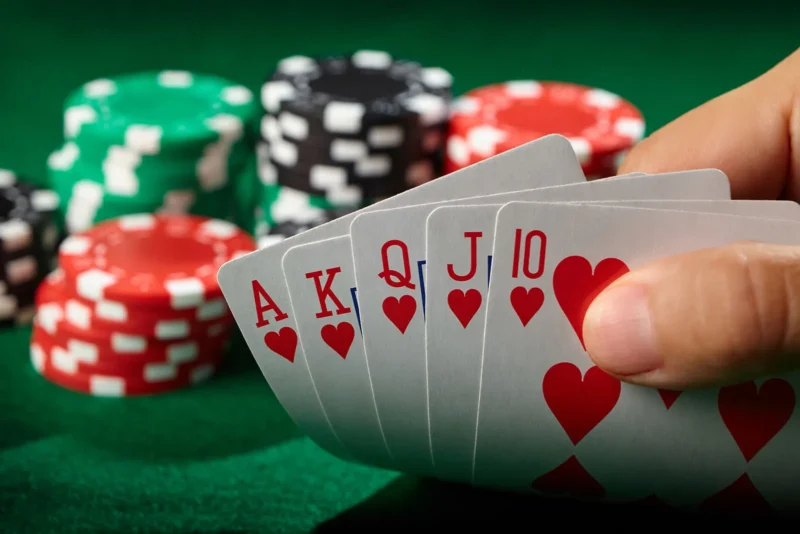The Art Of Strategy: Comparing Poker And Soccer …C0NTINUE READING HERE >>>
Both poker and soccer are popular pastimes enjoyed by millions around the world. On the surface, these two games might seem worlds apart—one is a card game played on a table, while the other is a physical sport played on a field.
However, a closer look reveals surprising similarities, particularly in the poker and soccer e areas of strategy, psychology, and the balance between skill and chance.
Strategy: The Core of Success
In both poker and soccer, strategy is key to success. In poker, players must carefully analyze their opponents, calculate odds, and decide when to bet, fold, or bluff. This decision-making process requires a deep understanding of the game and the ability to predict how others will act based on incomplete information. A poker free game, often found online, allows players to practice these skills without financial risk, honing their strategies before stepping into more competitive environments.
Soccer, similarly, is a game of strategy, but in a more dynamic and physical context. Coaches and players must constantly adapt to the flow of the game, adjusting tactics based on the opponent’s strengths and weaknesses. The positioning of players, the timing of passes, and the execution of set pieces all require careful planning and quick thinking. Like poker, soccer demands a balance of patience and aggression, with the best teams knowing when to press forward and when to hold back.
Psychology: Reading the Opponent
Another striking similarity between poker and soccer is the psychological aspect. In poker, reading your opponents is crucial. Understanding their tendencies, recognizing bluffs, and predicting their next move can make the difference between winning and losing. This psychological battle is a fundamental part of the game, where every gesture and decision can provide a clue to the opponent’s hand.
In soccer, the psychological game is played on a larger scale. Teams often try to get inside their opponent’s heads, using mind games to disrupt their focus. This can be seen in the way players
interact on the field, the strategic fouls, or even in the pre-match build-up where words are exchanged through the media. Much like in poker, the ability to maintain composure under pressure and anticipate the opponent’s moves is a key component of success.
Related: EXCLUSIVE: Presidency Takes Charge Of Appointment Of New Super Eagles Coach
Skill vs. Chance: A Delicate Balance
Both poker and soccer involve a delicate balance between skill and chance. In poker, while skillful players tend to win over the long run, each individual hand can be influenced by the luck of the draw. This randomness keeps the game exciting and ensures that even a novice can occasionally come out on top. However, access to a poker unblocked game allows players to improve their skills, reducing the impact of luck through practice and experience.
Soccer, too, balances skill with unpredictability. A team may dominate possession, create numerous chances, and yet still lose due to a lucky goal or a momentary lapse in concentration. This element of unpredictability is part of what makes soccer so thrilling to watch. However, over a full season, the most skillful and well-prepared teams usually rise to the top, much like the best poker players do over time.
Conclusion: Two Worlds, One Mindset
While poker and soccer may appear to be vastly different games, they share core elements that make them fascinating and challenging. Both require strategic thinking, psychological insight, and a keen understanding of when to rely on skill versus when to take a gamble. Whether you’re sitting at a poker table or standing on a soccer pitch, success in both arenas demands a blend of intellect, intuition, and sometimes, a little bit of luck.
Related
Got what it Takes?
Predict and Win Millions Now
>
